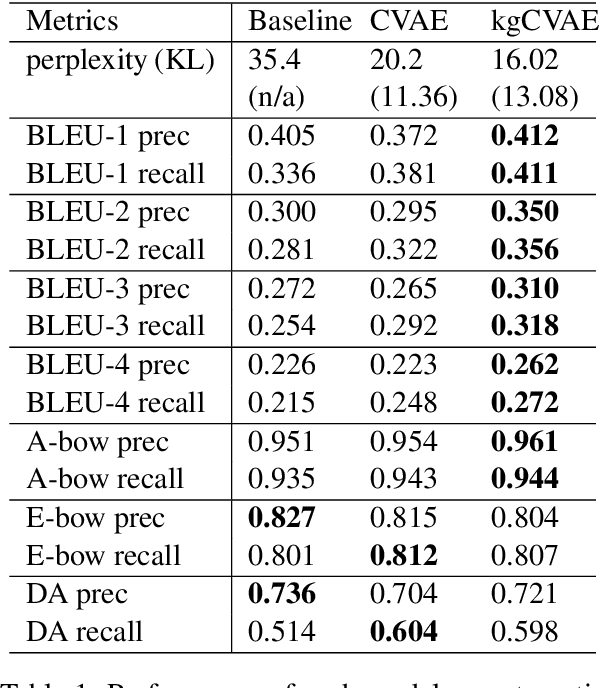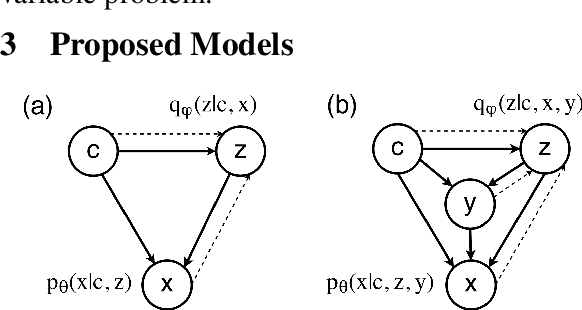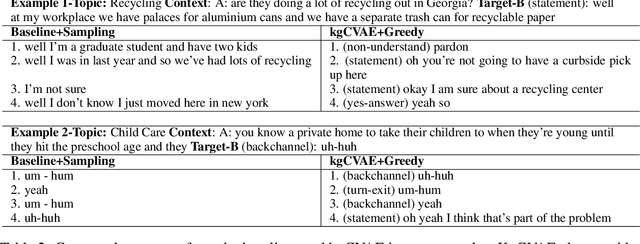Learning Discourse-level Diversity for Neural Dialog Models using Conditional Variational Autoencoders
Paper and Code
Oct 21, 2017



While recent neural encoder-decoder models have shown great promise in modeling open-domain conversations, they often generate dull and generic responses. Unlike past work that has focused on diversifying the output of the decoder at word-level to alleviate this problem, we present a novel framework based on conditional variational autoencoders that captures the discourse-level diversity in the encoder. Our model uses latent variables to learn a distribution over potential conversational intents and generates diverse responses using only greedy decoders. We have further developed a novel variant that is integrated with linguistic prior knowledge for better performance. Finally, the training procedure is improved by introducing a bag-of-word loss. Our proposed models have been validated to generate significantly more diverse responses than baseline approaches and exhibit competence in discourse-level decision-making.
 Add to Chrome
Add to Chrome Add to Firefox
Add to Firefox Add to Edge
Add to Edge